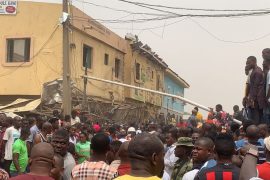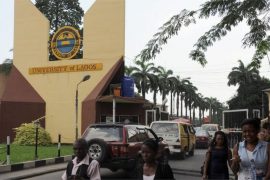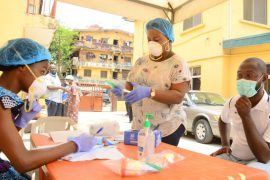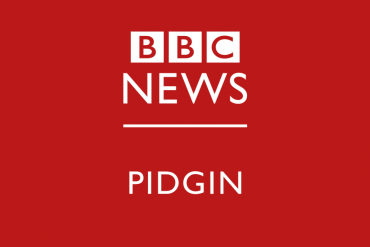Nigeria na both Africa largest economy plus di kontri wit di most pipo, about 214 million, wetin happun dia dey get big impact.
Voters dey prep to elect new leaders afta eight years with Muhammadu Buhari but who win go face beta wahala.
Here, for charts, na some of di tins wey pipo wey dey vote dey tink.
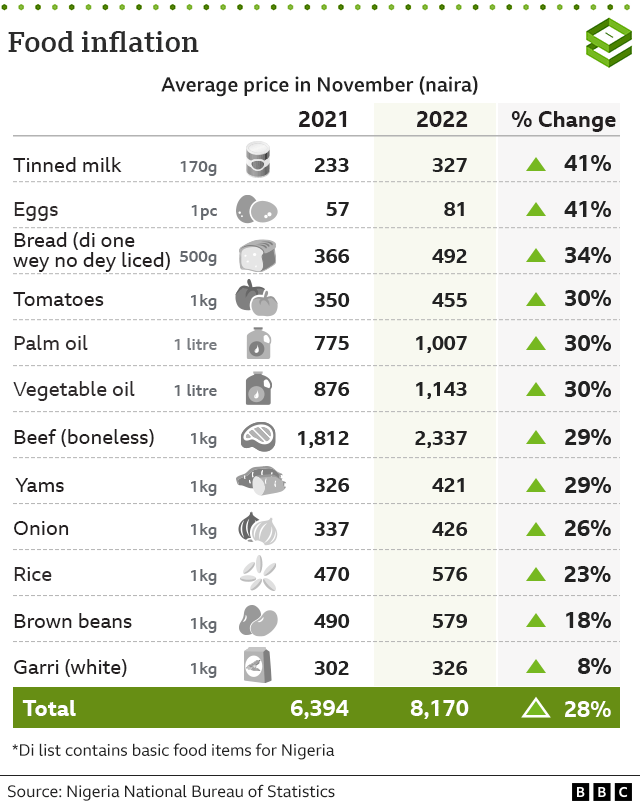
For di last year, pipo for Nigeria (and worldwide) dey face rise in food prices sake of di Ukraine crisis. But prices don dey climb before di fight-fight start sake of border closure, and scarcity of foreign exchange.
Las-las inflation for 2022 bin dey just under 19%, di highest in twenty years. Tins like garri na one of di tins wey neva enta di food ris price but large jump on tins like tomato and vegetable oil don create major kasala for families.
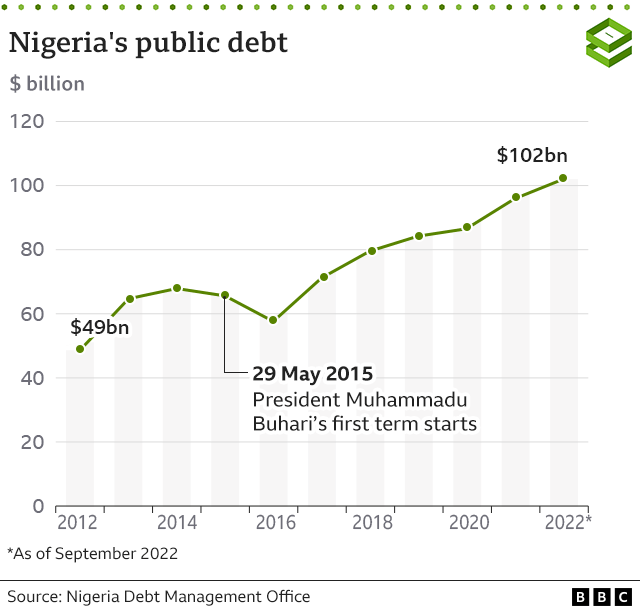
If di new president wan help pipo with di cost of basic tins, dem go face di wahala say goment dey already spend pass wetin demy get.
Plenti money dey enta subsidising petrol and di oil producing kontri neva take advantage of higher oil prices as dem no dey refine and still dey re-import petrol.
Analysts dey very concerned of weda di public debt dey sustainable and di cost of paying interest of am wey pass goment money sometimes for 2022.
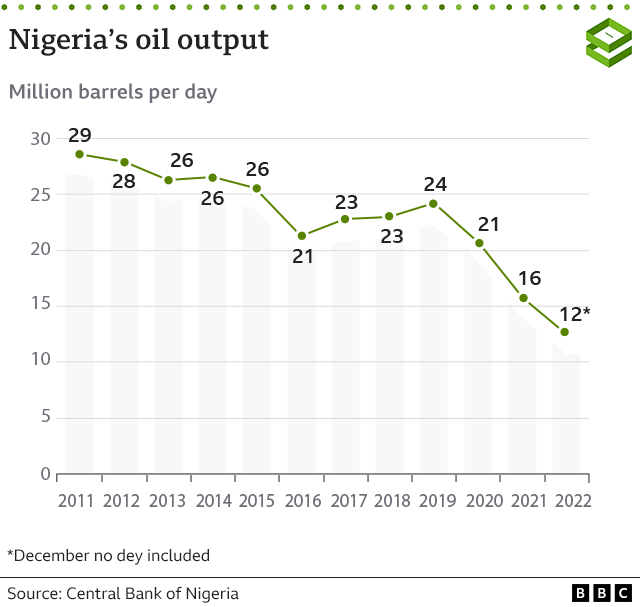
As one of Africa top oil producers, Nigeria don rely on di black gold for goment revenue and source of foreign currency. But dem neva make beta use of di money as plenti dey stolen or misused.
And oil production don dey reduce in di last ten years. In 2022, e fall to di lowest level in 30 years.
Oil theft and vandalism dey blamed as wetin cause di loss of output. On top dis na years of under investmen and di age of di oil fields gan-gan, mean say Nigeria dey behind oda African oil-producing kontris.
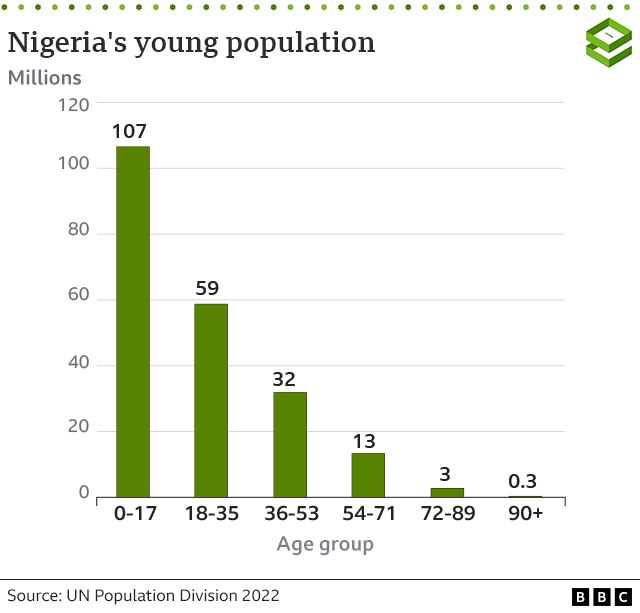
As half of Nigerians na under 18, di kontri leaders dey face challenge on how to catch dis youthful population.
Dem need to help di economy grow to fulfil di needs and ambitions of all dis young pipo.
Even though plenti pipo to young to vote, 40% of registered voters na under 35, wey make dem plenti. Direct appeal to dem fit influence di election.
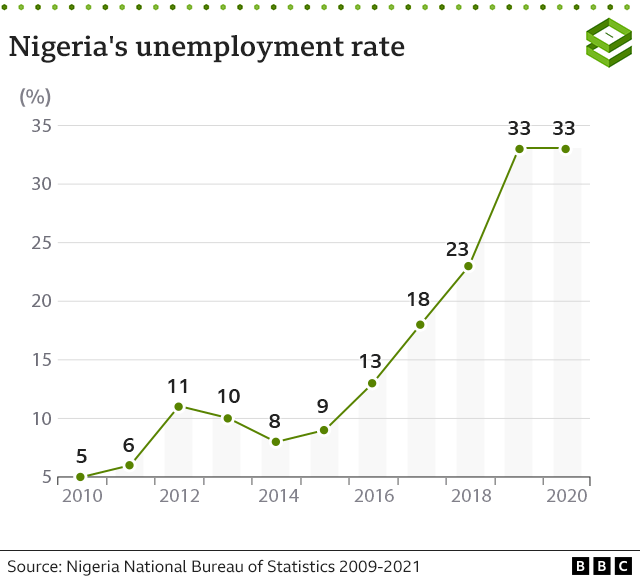
Di first tin most young Nigerians want na work.
Currently one third of Nigerians wey wan work dey unemploed. For young pipo, more than half of di pipo between 15 and 24 dey find work.
Covid pandemic add hand to di wahala but even before unemployment rates dey rise.
Di economy don grow since 2015, but e no fast reach to carry all di new pipo wey dey find work.
Insecurity na one of di reasons dem tok say dey behind di low growth but econoisr don also blame oda measures like currency restrictions and shutting of di borders to imports as wetin dey discourage investment.
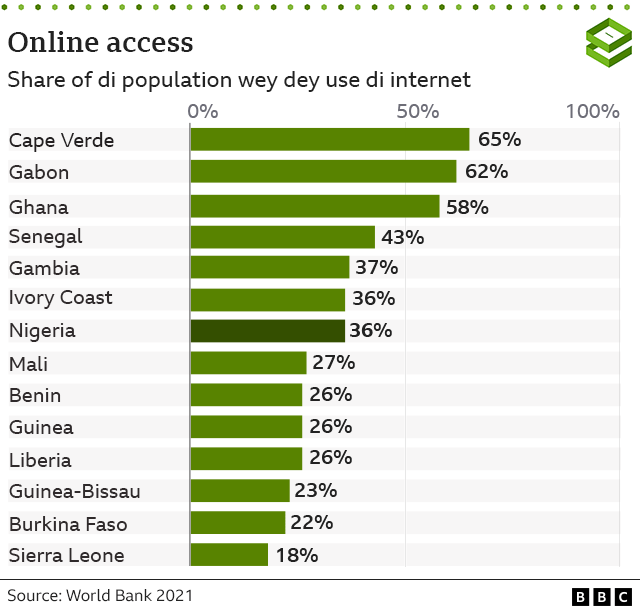
Di kain access to infrastructure wey fit improve di ease of doing business dey low.
Electricity supply kasala don dey part of d yabis for long and na only like 55% of di population get access to electricity, na wetin World Bank figures tok.
And wen e come to internet use na only 36% of di Nigerians dey go online, wey put am for middle for middle of West African kontris.
to deal with di growing kasala for Nigeria go be major priority for di next presido.
Wen President Buhari first enta office for 2015, di threat of di militant Islamist group Boko Harm for north-east na di biggest wahala,
Even though dem no dey control plenti arrests, increase in kidnapping, politically motivated attacks, farmer-herder gbege, criminal palava and police brutality no really trust goment to keep dem safe.
And no be wahala wey dey only di north-east, e don spread around di kontri.
One in five of di pikin for world wey no dey school dey Nigeria, according to di UN children’s fund, Unicef.
Even though na partially because of how many young pipo di kontri get, di fact sat about 40% of di kontri 5-11 years no dey school dey worry.
Na di whole kontri get dis wahala but attendance levels bad pass for north. Some of dis na because of insecurity, but gender and poverty also be reasons.

- Peter Obi: Di careful businessman wey dey capture young Nigerian hearts
- Bola Tinubu: Lagos ‘godfather’ dey chook eye to conquer Nigeria
- Atiku Abubakar: Di man wey want Nigerians to look back go forward
- Rabiu Kwankwaso: Di red-capped man wey dey eye Nigeria top job
- Meet Nigeria presidential election candidates wey dey hope to replace Buhari
- Full coverage: Nigerian Presidential Election 2023



